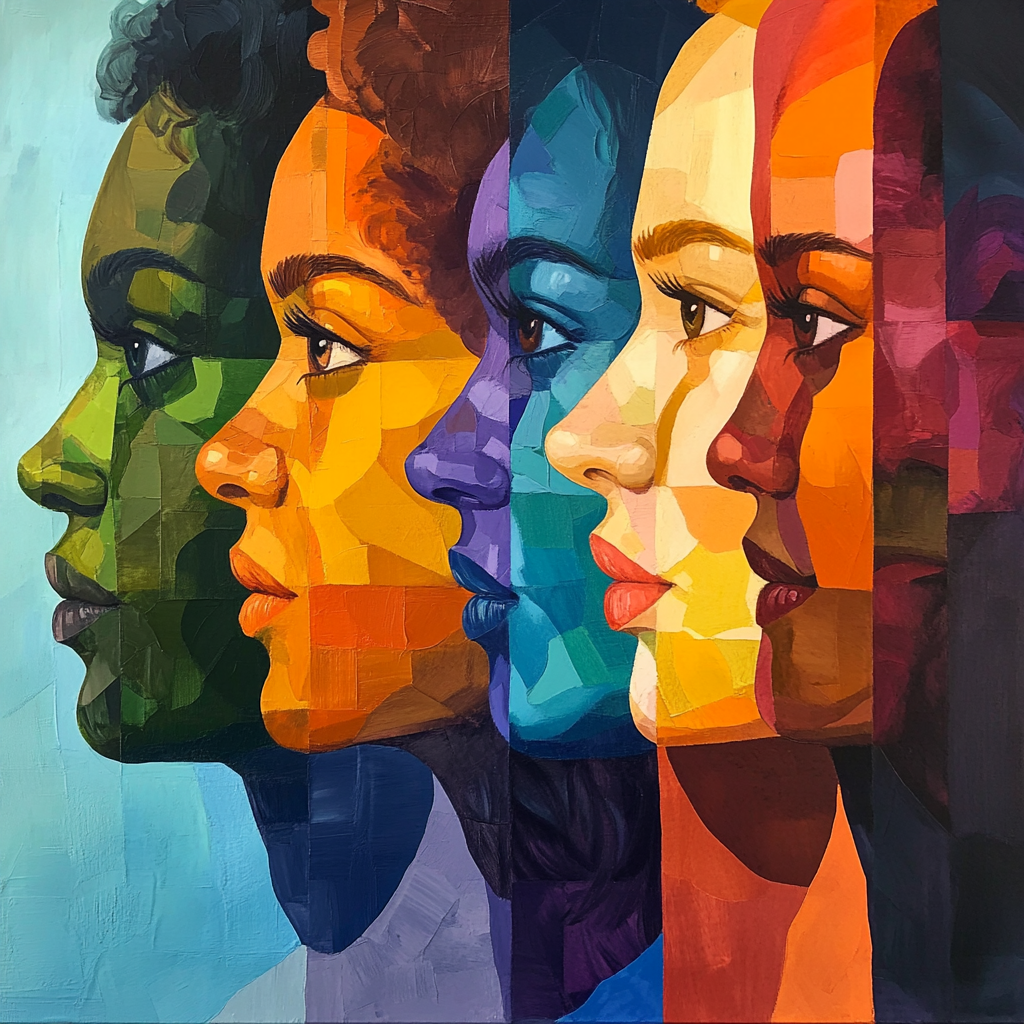Understanding Intersectionality: Weaving the Threads of Individual Identity
Phone: (240)-388-9333 | Email: contact@therapeutictseng.com
Intersectionality acknowledges that each person is a complex tapestry of various identities, experiences, and social positions. Just as a tapestry is made up of countless threads, each unique and essential to the overall masterpiece, our identities showcase the many aspects of who we are—race, gender, sexuality, class, ability, culture, choices, and more. These threads do not exist in isolation, but are intricately intertwined, influencing one another to create an individual identity that is entirely unique. My work with clients who hold different positionalities and perspectives have all illuminated the importance of seeing people as more than the sum of their parts. Intersectionality, in this sense, is not merely an academic exercise but a way of seeing the world that can profoundly impact how we connect with others, understand ourselves, and approach healing and growth.

In contrast to the rich, multi-faceted perspective that intersectionality provides, the concept of a monolithic (singular, unchanging, rigid) identity simplifies and flattens the complexity of who we are. A monolithic identity assumes that there is one “correct” or dominant way to embody a particular aspect of identity, whether it’s race, gender, sexuality, culture, or more. This assumption ignores diverse experiences and supports the false notion that people must choose between different aspects of themselves.
In therapy, it’s important to recognize that one does not have to choose between their identities. There is no right or wrong way to exist within any identity, and each person’s unique intersection of experiences, values, and desires contributes to the richness of who they are. By embracing intersectionality, our therapists help clients move away from the limiting idea of a monolithic identity and towards a more integrated, authentic self.
Multiracial, multicultural, and globally mobile individuals often face unique challenges in navigating identity. What is a unique amalgamation of multiple cultural expectations, values, and norms, might feel to an individual like not fully belonging to any single group. Someone who has lived in different regions or countries might struggle to reconcile the different cultural influences that shape their worldview. These individuals may also feel pressured to “choose” a primary identity or to fit neatly into the expectations of where they live, or who they spend their time around, which can lead to feelings of isolation or internal conflict.
As a therapist, I am committed to honoring the full complexity of my clients’ identities. By embracing intersectionality, I aim to create a therapeutic space where all aspects of a person’s identity are acknowledged, validated, and explored. This approach fosters a deeper understanding of the self and empowers clients to navigate their lives with a greater sense of authenticity and resilience. Understanding the interconnected nature of our identities can help us unravel the challenges that arise from the belief that we must conform to a monolithic identity—whether imposed by society or internalized by ourselves. In doing so, we can weave a stronger, more integrated sense of self.
.My passion for intersectionality stems from a belief in the power of diversity—not just as a concept, but as a lived reality that enriches our lives and our communities. Each thread in our tapestry adds depth, color, and strength, creating a life that is both beautiful and resilient. In therapy, as in life, recognizing and honoring the intricate weave of our identities is key to fostering true healing and growth.
Contact Us
Reach out to Therapeutic Tseng to schedule a session, ask questions, or just connect. We'll be sure to get back to you as quickly as possible.